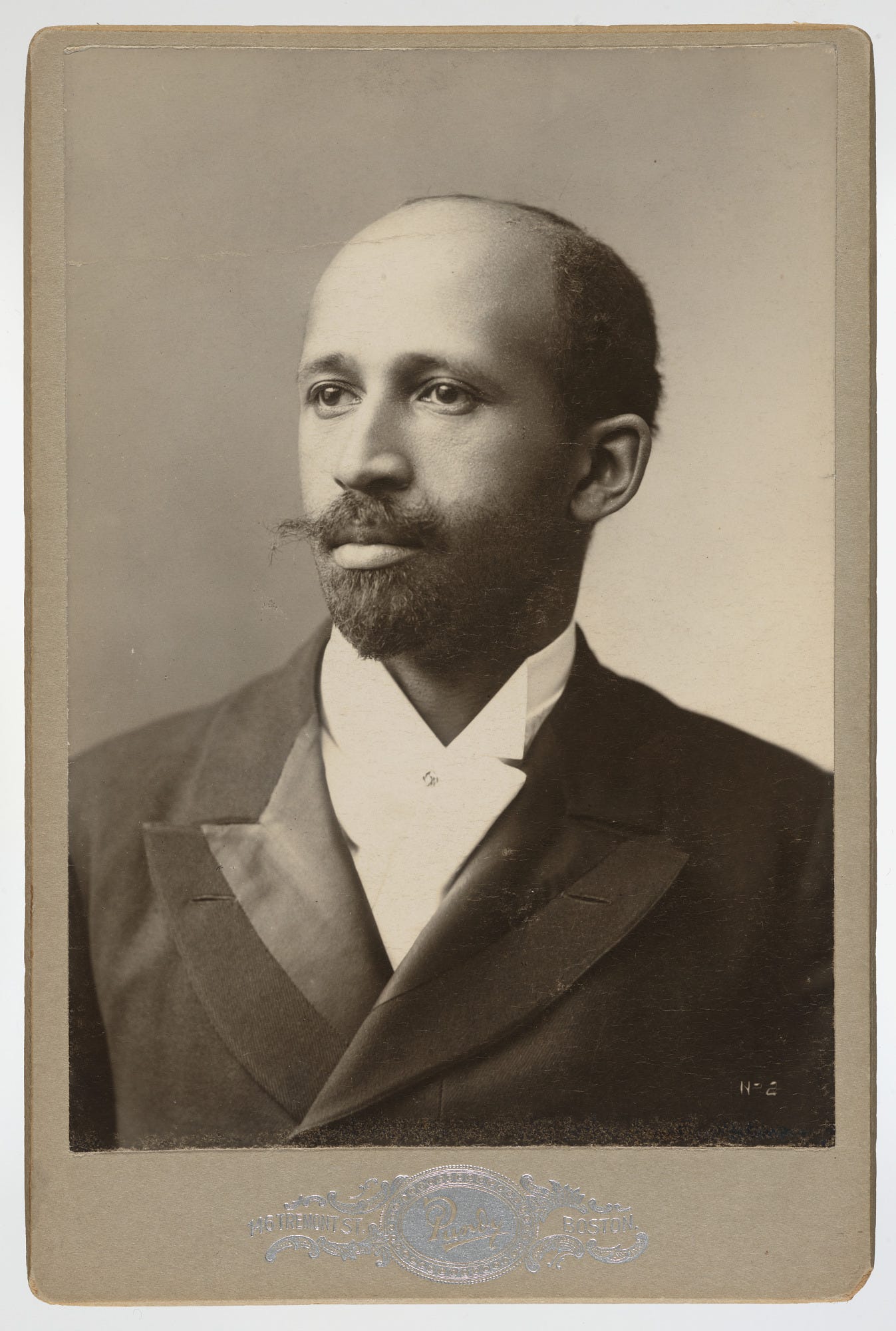W.E.B. Du Bois
Introduction
The following thoughts may seem obvious to some, but around the turn of the 20th century, when W.E.B. Du Bois offered Americans these insights, they were a paradigm shift in thinking. He suggested that,
Black Americans lived with a "double consciousness," or the idea that they navigated life by attempting to be their authentic selves while having to do so within the cultural expectations and norms of a predominantly white society.
Most white Americans didn't empathize with or understand the black American experience.
He said the latter poignantly in the following quote:
"Between me and the other world there is ever an unasked question: unasked by some through feelings of delicacy; by others through the difficulty of rightly framing it. All, nevertheless, flutter round it. They approach me in a half-hesitant sort of way, eye me curiously or compassionately, and then, instead of saying directly, How does it feel to be a problem? they say, I know an excellent colored man in my town; or, I fought at Mechanicsville; or, Do not these Southern outrages make your blood boil? At these I smile, or am interested, or reduce the boiling to a simmer, as the occasion may inquire. To the real question, How does it feel to be a problem? I answer seldom a word."
In surfacing these ideas, W.E.B.'s goal was to help bring the races closer together through an understanding of each other and oneself. How much of this he accomplished is debatable. However, his works undoubtedly helped bring awareness and momentum to the movements working hard to improve the lives of black Americans and Americans in general.
Biography
"I was born by a golden river and in the shadow of two great hills, five years after the Emancipation Proclamation, which began the freeing of American Negro slaves." - W.E.B. Du Bois
William Edward Burghardt Du Bois was born to Alfred Du Bois and Mary Silvina Burghardt on February 23, 1868, in Great Barrington, Massachusetts, a small charming town in the Berkshires. There, his ancestors had long lived free, and his family owned property in a predominantly white but integrated community known for its makeup of hard-working people, many of whom were of Dutch and Irish descent and, in today's language, middle class. As W.E.B. said about the town, "We did not dream of a day when a man doing nothing could be a millionaire at 35, while his fellow broke back and heart and starved."
The beauty of the Berkshires and greater equality than most parts of America set a more pleasant atmosphere for an upbringing. And in many ways, W.E.B. thrived. He explored the many natural landscapes the region offered. And the intellectual brilliance he would become known for began showing in these early years.
Since his father abandoned the family when W.E.B. was just two, his mother had raised him. However, she suffered from ailments, and as a result, the family faced economic hardships. Even so, she prioritized her son's schooling, doing her best to ensure he did his. His precocious intellect and hard work soon attracted the attention of his teachers and community members, who recognized his potential as a scholar and leader. The community around W.E.B. came together to help him with financial assistance and mentoring so that he could access quality education after graduating as valedictorian from Great Barrington High School in 1884.
Keep reading with a 7-day free trial
Subscribe to Historical Snapshots to keep reading this post and get 7 days of free access to the full post archives.




